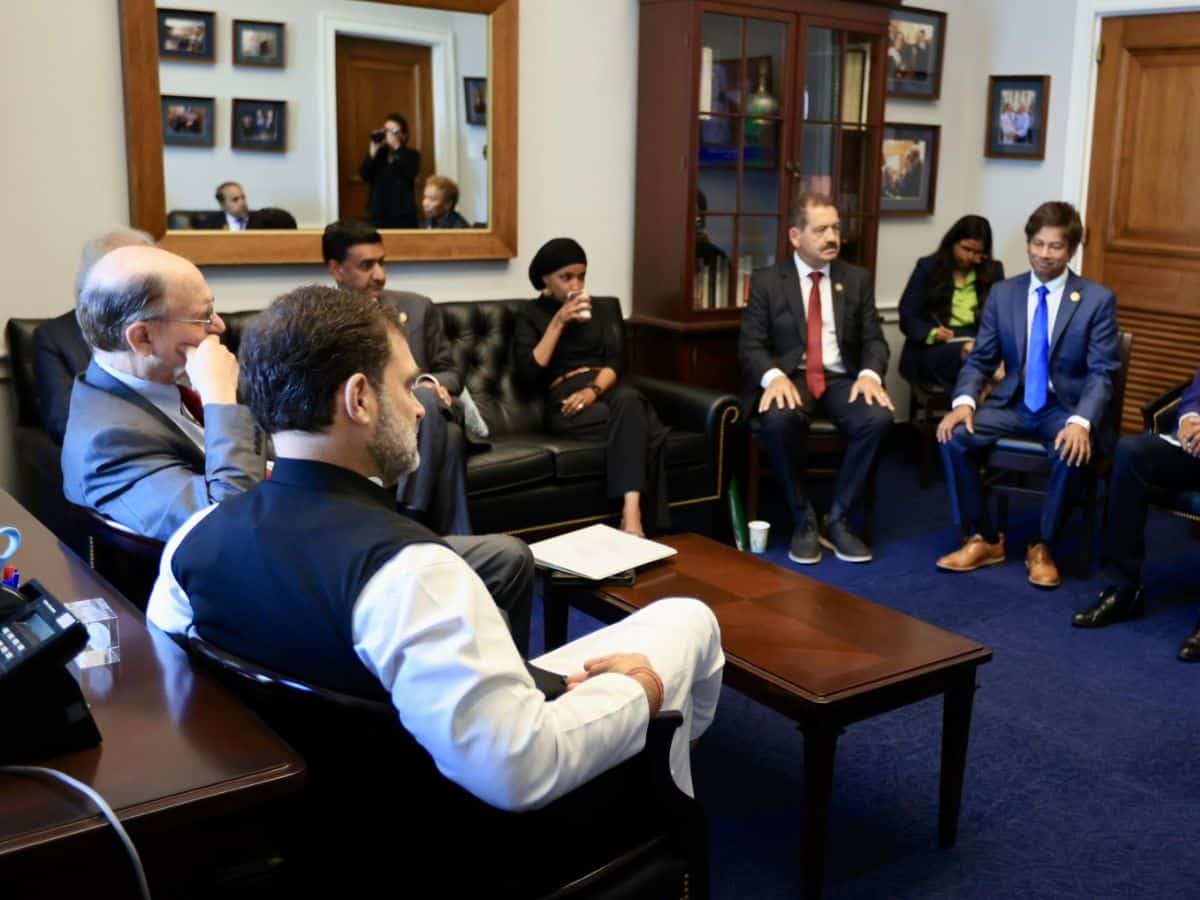
Congress leader Rahul Gandhi’s recent visit to the United States has provoked a war of words between the ruling BJP and the main opposition Congress in India.
Should the Indian leaders refrain from badmouthing the ruling BJP while abroad? Is there a red line, and has Rahul crossed it while he was in the US? The BJP claims yes, and the Congress says no.
During his recent US visit, Rahul Gandhi, who is the leader of the opposition in the Lok Sabha, criticised the Indian government and Prime Minister Narendra Modi, prompting backlash from the BJP. The Congress responded by accusing Modi of frequently targeting the Congress during his foreign trips since 2014, citing numerous examples.
Further, the Congress also accused the BJP of misrepresenting Gandhi’s statements to fuel controversy.
Through various programs, Rahul sought to strengthen ties with the diaspora while addressing political concerns to students, officials, and lawmakers in the US.
Why does he want to woo the Diaspora?
PM Modi also has constantly visited abroad to connect with the Indian Diaspora. Rahul Gandhi is also aiming to strengthen his ties too with the Indian American community. Over the past decade, the presence of Indian Americans in U.S. politics has surged, with five members in the House of Representatives, one senator, and notable figures such as vice-president Kamala Harris and vice-presidential candidate JD Vance, who has an Indian spouse.
The growing influence of Indian-Americans, who make up about one percent of the U.S population, can be attributed to significant gains in education, affluence, and political awareness over the past two decades and their representation in US Congress is now one percent.
Rahul commented on the RSS, India’s democracy, Modi’s China policy, and religious freedom in India, among other things. On the RSS, Gandhi said that the BJP’s parent organisation believes India is “one idea”, but the Congress considers it a “diversity of ideas. This criticism of the RSS, a critical ideological force behind the BJP, upset the BJP.
In India, the BJP condemned Rahul Gandhi for his critical remarks and meeting with US Congresswoman Ilhan Omar accusing him of potentially aiding anti-India propaganda. The BJP claims that the Gandhi’s action can be used for anti-India propaganda. In response, he explained that Omar was part of a broader lawmaker delegation and questioned how he could have refused to meet with them.
Rahul pointed out that Indian democracy has faced challenges for the past ten years and is improving. He also highlighted that 90 percent of India’s population, including OBCs, Dalits, and Adivasis, are not able to take an active part in the democratic process. This has upset the BJP.
While Rahul agreed with Modi’s policies on Pakistan and Bangladesh, he felt Modi’s China policy was flawed. Rahul pointed out,” We’ve got Chinese troops occupying land the size of Delhi in Ladakh. I think that’s a disaster.”
The BJP fielded top leaders to refute Rahul’s allegations, with Defence minister Rajnath Singh leading the charge. Singh dismissed Gandhi’s criticisms, particularly on China’s policy, calling them “extremely shameful” and accusing the opposition leader of damaging India’s dignity by making “misleading, baseless, and factless” statements.
Rahul Gandhi also sparked the debate on the issue of releasing the caste census, accusing the BJP of attempting to end reservations. Union minister Amit Shah rejected this claim stating that the BJP would never allow the abolition of reservations or any threat to national security. Countering his remarks about the status of Sikhs in India, Senior minister Hardeep Puri said,’ I am a proud Sikh. I have been wearing a turban for over six decades and a kada for even longer”.
The BJP takes Rahul’s statements with significant concern due to his role as LOP and leading the ‘Bharat Jodo’ yatra. Both the Congress and the BJP’s electoral fortunes have been fluctuating. Both Congress and BJP have experienced fluctuating electoral fortunes, with Congress managing to survive and even double its numbers in the 2024 elections despite Modi’s pledge to make India “Congress-Mukth Bharat.”
Following the 2024 elections, the opposition coalition INDIA was strengthened, compelling the BJP to form the government with the support of its allies.
Rahul Gandhi’s visit to the US, ahead of Prime Minister Modi’s scheduled trip on September 22, was well received, which did not please the BJP. Despite this Modi is expected to receive a grand welcome both officially and from the Indian community during his visit.
At the end of his visit, Rahul clarified, “The fight for democracy in India is Indian. It has nothing to do with anybody else. It’s our problem. And we’ll take care of it. We will make sure that democracy is secure.” This statement aimed to dispel any notions that he was seeking foreign intervention to address India’s issues.



